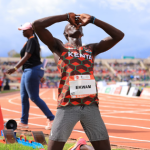Willy Kuria, the newly elected head of the Kenya Secondary Schools Heads Association (KESSHA), has called for a review by the Ministry of Education regarding the decision to house Grade Nine students in primary schools, suggesting instead that they be transferred to secondary schools.
Kuria highlighted that many primary schools currently lack the necessary facilities required to provide quality education to learners. He expressed concerns that this situation could compromise the educational standards for these students, advocating for their admission to high schools starting next year.
Additionally, Kuria pointed out that with the departure of Form Four candidates, there will be vacant classrooms in secondary schools that could accommodate Grade Nine students effectively.
“The government has committed to build new classrooms in primary schools to accommodate the learners but facilities such as laboratories, home science rooms and other facilities are not available,” remarked Kuria.
“The learners need quality education and the primary schools in their current status are not able to offer it,” he added.
Earlier this year, Belio Kipsang, the Principal Secretary for Basic Education, stated that the decision to place Grade Nine in primary schools was based on the input gathered from education stakeholders during consultations conducted by the Presidential Working Party on Education Reforms.
Kipsang also dismissed concerns regarding the readiness of primary schools to accommodate Grade Nine learners, asserting that there is no opportunity to reconsider this decision.
The chairperson of KESSHA expressed frustration over the delayed disbursement of funds, which has adversely affected the operations of learning institutions. “The capitation is supposed to be Sh22,000, but we often receive less and the funds arrive late,” he remarked.
Additionally, Kuria emphasized that KESSHA will advocate for the Kenya National Examination Council (KNEC) to become an autonomous body. He argued that autonomy would enhance accountability, particularly in addressing recurrent issues like national exam leaks, thereby enabling better scrutiny of the Chief Executive Officer’s actions.
“When such cases come up, we don’t know who to hold accountable whether it’s the minister or the council,” he said.
“I am urging the stakeholders in the education sector to join us in pushing this agenda so that we can have an independent examining body and bring to an end these cases of exam incidences.”



